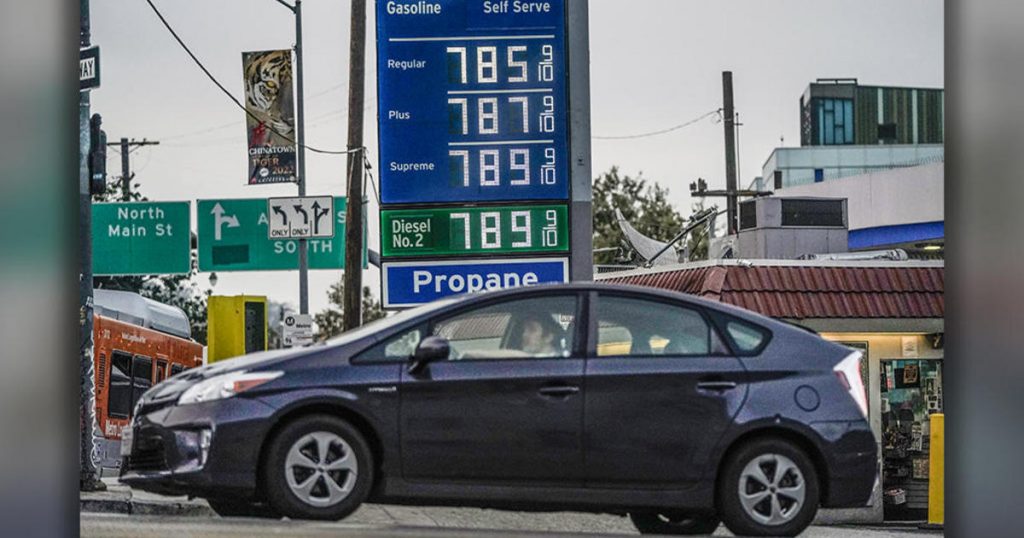
The average price of gas hit a record high of $6.44 a gallon in California last week. On Friday, it was at $6.35. That was higher than the national average of $4.93. But the rebate will help the majority of California taxpayers, even those who are not registered to vote. If you live in California and pay at least half of your gas tax, you will be happy to hear about this rebate.
The state-wide average price for a gallon of gas hit a record high in July.
Gas prices are rising across the country as the summer travel season gets underway. The national average price for a gallon of gas was $4.11 in July last year. The price of oil has also skyrocketed because of the war in Ukraine and decreased supplies from Russia. Drivers in this state are forced to work more hours than their counterparts elsewhere, pushing the price of gas even higher.
The state-wide average price for a gallon of gas hit a record high in July. It was the highest since July 2008, when gas prices topped $4.10. The average price of gas rose by 10 cents in one day, or 55 cents in the past week. The spike in gas prices is exacerbated by fears of a global oil shortage. Meanwhile, the price of crude oil has risen significantly over the past few months.
State legislators can’t agree on a gas tax holiday plan.
Democrats are opposed to the idea of a state-wide gas tax holiday, saying it would hurt Californians who are already struggling to pay their gas bills. However, Democrats also say that $400 payments to Californians would be beneficial to all citizens. They point out that the savings from a gas tax holiday would go directly to consumers. But economists have found that savings from gas tax suspensions in the past went to consumers, not to the oil and gas industry.
The problem is that the federal gas tax has not been raised since 1993 when gas was just over a dollar a gallon. The idea of a gas tax holiday would not only hurt consumers but would also deplete the resources needed for highway construction. Materials and labor costs are rising at a rapid rate, making the idea of a gas tax holiday a gimmick.

The impact of a gas tax holiday on transit projects
As budget negotiations reach their final moments, a coalition of environmental, transportation, and labor groups has urged state leaders to keep the gas tax holiday in place. These organizations believe that a gas tax holiday will reduce the amount of funding available to state-wide transit projects by nearly $2 billion. This would undermine the current funding mechanism for the Highway Trust Fund, which funds most of the federal government’s spending on mass transit and highways. But the White House argues that the money would be transferred from other government accounts to keep the gas tax holiday in place.
While the state’s economy has been recovering from the recession, increased gas prices have prompted many residents to buy more fuel-efficient cars and drive less. While higher gas prices might seem like a temporary solution to California’s transportation woes, a state that prioritizes protecting the environment would benefit from reducing its emissions and tackling climate change. Ultimately, a gas tax holiday would save Californians only a few pennies a gallon and delay state efforts to improve its transportation infrastructure.
The cost of a gas tax holiday on consumers
One-time state gas tax holidays may save consumers more money than a three-month federal holiday. However, this policy is unlikely to disrupt the current supply-demand imbalance. While a one-time state gas tax holiday may save consumers more money than a three-month federal holiday, this political gimmick is only temporary. Ultimately, it only patches the problem and artificially brings prices down. Policymakers need to address the root causes of this imbalance and the underlying constraints on supply and demand.
Whether or not a California gas tax holiday is good for consumers depends on how the state’s gas stations will implement the change. A gas tax holiday has the potential to raise prices across the country, but the cost to California drivers will be lower. State-run gas stations will implement the change, but it’s unclear how long it will last and what its impacts will be. But the state’s political system is highly polarized, and this could make the situation even more unstable.